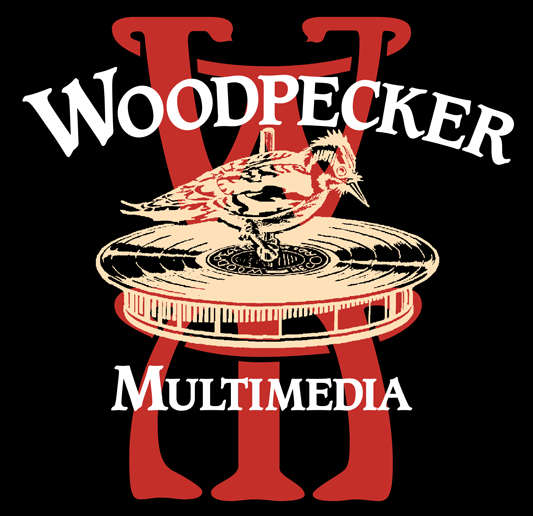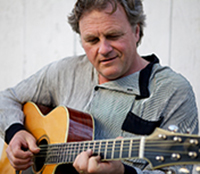|
|
Harvey Reid's MP3 Essay
WHAT IS MP3? (This was written and posted in 2000)
There has been a flurry of press devoted lately to the MP3, which is a new type
of computer-based music compression algorithm that is supposedly going to revolutionize
the way recorded music is distributed, sold and broadcast. A typical song in
CD format (called 16-bit audio) contains about 40-50 megabytes of information,
which still is quite a chunk of data even by today's standards. (My first hard
drive I bought 10 years ago had 20 meg total!) An entire CD can hold 700 megabytes
of information, and even at the fastest modem rate of 56k, this is still many
many hours of time to transfer over phone lines. Shrinking it by a factor of
10 (to 5 meg) makes it 10 times easier to transmit, and this has now reached
the "do-able" level for people (especially college students) who have
fast internet connections.
DOES MP3 SOUND THE SAME AS CD?
In all the press I have seen, people talk as though the MP3 files
sound just as good as the real thing. I have been suspicious of
this, since it is hard to believe you can throw away 90% of the
information and not lose anything. As a musician who records and
produces acoustic music, I did a lot of careful listening and
experimenting with some MP3 encoding programs and have come to
some conclusions. First of all, MP3 does not sound identical to
a CD. Period. MP3 in my opinion is about like a cassette in quality.
(I actually prefer MP2 to MP3 for the kind of listening I do.)
The 10% size compression sounds pretty good, maybe quite good,
but not awesome. At the highest quality that these encoders can
do, I can shrink the files to 18% of their size, and they do sound
very good, and I enjoy listening to them quite a bit, and if you
were not comparing them to the real thing you might not know they
weren't. At the lower settings of MP3 fidelity, they sound thin
and harsh to me.
As a serious musician who wants my recordings to sound as good
as possible, I am more interested in ways to get better sound
quality than CD's offer, not worse. Audiophiles have felt since
the beginnings of CD's that the digital standards for CD's were
too low, and now we are trying to make them a lot lower to make
them easier to send over wires. Personally I am not excited by
this very much. Do you want to listen to Pavarotti on MP3? George
Jones? It is my belief that if you are listening to music where
the richness of the tone is vital to the music, then MP3 will
deliver you less richness and cheapen your listening experience.
I find it to be sort of sinister when I compare MP3 to CD music.
You can't put your finger on what's missing. You ask yourself:
"Is the bass still there? The treble? Midrange?" and
it is still there, but the music does not sound as rich. I worry
that people will listen to my guitar and not hear the richness
of the tone and not even know what they are missing. Do you want
to look at prints, photocopies, or computer pictures of Van Gogh?
Of course not. Well, the internet versions of music are simply
not as rich as the CD versions, and even the CD versions are barely
good enough. MP3 is a step in the wrong direction.
WHY ALL THE FUSS?
In my opinion, techno and pop music sound better on MP3 than does
acoustic music, where the tone is more vital to the message. When
a throbbing drumbeat and some outrageous lyrics are the message,
that comes through in the lower fidelity of MP3 better than does
the sound of an acoustic instrument or a beautiful voice. This
is why you don't hear the classical and jazz and audio buffs raving
as much about MP3. You want to hear Perlman's violin or Marsalis'
horn in the best fidelity you can. When the original sound is
a computer drumbeat, electric bass and electric guitars, digital
keyboards, what is the point of listening in high fidelity anyway?
The only thing on most pop recordings that is even recorded with
a microphone is a rhythm acoustic guitar (usually played without
much skill) and the singer's voice. The other 30 studio tracks
are typically all synthetic and electronic anyway, and heavily
processed electronically after they are recorded. Add to this
the fact that almost all popular music has been heavily "compressed"
in the recording studio, and you will understand why MP3 compressions
of pop music sound fine to most people. Audio compression does
not change the size of the data file, but makes the dynamic range
or volume much narrower. There are no quiet or loud parts in a
compressed piece of music, and record producers have found that
they can make their songs "louder" than other songs
by compressing them. When you eliminate the peaks that would red-line
the tape machines, you can boost the overall level of the song
higher. Technically, this is called "limiting", and
compressing is when you also boost the quiet parts. Music that
has been already compressed in the audio sense will be easier
to compress in the digital data without losing the fidelity. When
you are listening to something rich like a jazz piano or a bluegrass
band, you want all the fidelity you can get. It's my belief that
MP3 is a logical consequence of the trend in popular music away
from capturing a recording of a real-life sound, and toward creating
them in the studio using various types of electronic instruments
and machines. It's sort of poetic justice. Audiophile CD's of
real musical events are not going to be replaced by MP3, and throwaway
pop CD's generated in a computer just might be.
WHAT'S GOING TO HAPPEN NEXT?
Supposedly the big record companies are afraid they are going
to lose control of their music, and they and many of the artists
are worried. There is no question that a lot of people have been
getting rich from ownership of music copyright and from selling
CD's, and there is no question that the landscape of how this
happens is going to change also. Some of the high-profile artists
have been backing MP3, saying that they don't get any money from
record sales now, so they don't care if they don't make money
in the new system. This is a reflection, no doubt, of some of
the bitterness they feel toward their record contracts. We may
end up with a world of music sales where the middlemen get removed,
and there may be no more radio stations, record stores, or record
companies, or record distributers before the digital dust has
settled. The latest controversy about Napster (a web service that
lets people trade MP3 files with each other through a central
server/library) and Gnutella (a similar service where people can
trade any kind of computer file with each other, without a central
server/library) may even lead to a world where big corporations
who are used to making huge $ from ownership, licensing and distributed
copyrighted art have to find another way to make money, which
they no doubt will do if they need to. The copyright gold mine
has been operating for quite a while, and it has been cleaner,
safer money than operating a real gold mine. The fact that millions
of college students now feel that recorded music should be free
does not bode well for the future of companies that make money
from selling music. (Like me!) This is very large stuff that is
happening lately, and it's anyone's guess whether the cops or
the robbers will win.
I make MP3 files out of my favorite music, to listen to on
my laptop in hotel rooms when I travel, and in the rental car
stereo (where I can wire the headphone jack of the laptop into
the tape deck of the car.) I enjoy listening to it very much,
and to have 6 or 7 hours of music on 1 CD is really convenient.
I see MP3 as the AM radio and jukebox of the next few years, since
it sounds good enough for the non-critical listening you would
do in a car or over a small speaker in a store or office. We may
soon have MP3 players in our cars, but I find it hard to believe
that we will all get rid of our CD collections, or have one big
computer in the house with all our music on it. I'd hate to think
that a hard drive crash could cause me to lose my whole music
collection. I love my LP's and enjoy holding Cd's in my hand and
reading them and carrying them to another room. I spend enough
time in front of the computer, I don't need to do that to listen
to music.
I may release some "legal bootleg" recordings in
MP3 format only, possibly over the Internet only as downloads
or as limited-edition CD's with no printing costs. I could also
include promo and catalog information on the CD's very easily.
I have a lot of stuff in the vaults, such as outtakes, extra things
I found in my live-CD project, (such as funny songs...) some live
Christmas concerts, etc, that I like a lot, but have never wanted
to spend the money and time to do all the packaging and the graphics
and release as an "official" artistic statement, and
distribute to radio stations. I like the fact that the stuff will
be not-quite as good as the real-thing, but good enough to listen
to, since that is consistent with my feelings toward the performances
or the recordings themselves.
Remember that it has been possible to transmit the text of
a book over the internet for years now (it's not that much data
and only takes a few minutes to transmit.) Are books obselete?
Are bookstores obselete? Not yet. It may be that for these very
same reasons CD's will not become obsolete immediately also. People
like books and they like newspapers, even though they could get
their content online. I am sure the Bible is on the web somewhere,
but wouldn't you like your own bound edition by your bedside instead
of a computer screen or sheaf of computer printout?
Harvey Reid August 2000
WOODPECKER MULTIMEDIA
5 Fernald Ave York
Maine 03909 USA
phone (207) 363-1886

This web site
concerns the music and life of acoustic musician, writer & music educator Harvey Reid.
If
you don't find what you want, or if you have comments or questions, please email
to 
|
 H
H

